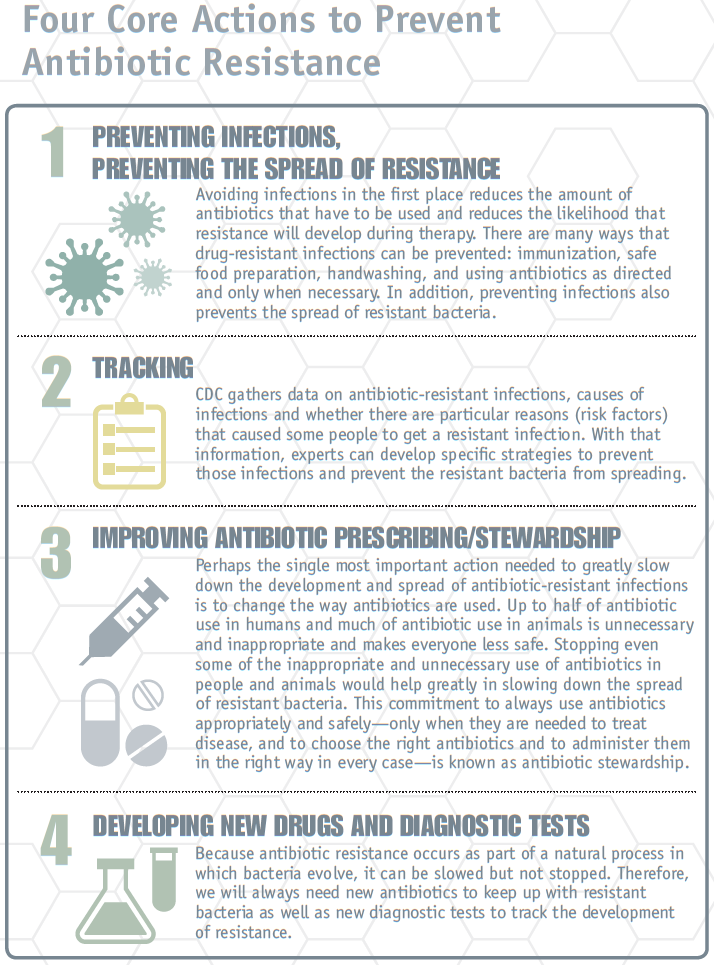The spread of antibiotic treatment led to emergence of multidrug resistant germs that “pose a catastrophic threat” to people in every country in the world. Each year in the US, at least 2 million people become infected with bacteria that are resistant to antibiotics, and at least 23,000 people die each year as a direct result of these infections.
Exposing bacteria to antibiotics over the ages, they start learning how to outsmart the drugs, giving birth to antibiotic-resistant bacteria. These bacteria can multiply, by sharing genetic information with other bacteria, and spread easily and quickly, causing severe infections. Each time bacteria learn to outsmart an antibiotic, treatment options are more limited, and these infections pose a greater risk to human health.
How can we fight these creatures?
There are many ways you can help prevent the creation and spread of resistance. Here are some smart advices you could keep while you are ill:
- Do not demand antibiotics from your doctor and/or do not take antibiotics that were not prescribed to you directly for your specific illness;
- When taking antibiotics, do not skip doses, and make sure to follow the directions about dose and duration from your doctor;
- Get updated and regular vaccinations against drug-resistant bacteria;
- Wash your hands before eating and after using the restroom to avoid putting drug-resistant bacteria into your body;
- Wash your hands after handling uncooked food to prevent ingesting drug-resistant bacteria that can live on food;
- Cook meat and poultry thoroughly to kill bacteria, including potential drug-resistant bacteria.
Read more what healthcare providers can do to protect patients from drug-resistant infections.
